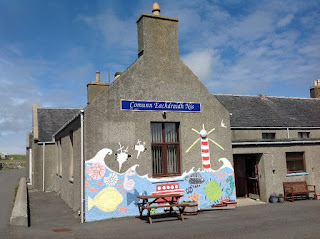
Growing up in Aberdeen. Children of the Nineteen Fifties. A special study. Aberdeen has seen dramatic changes since the 1950s. The “Granite City” had developed around industries such as paper making, fishing, quarrying and agricultural machinery. Then with the discovery of oil in the 1970s it was transformed into the oil capital of Europe as new wealth and new people arrived. Social mobility was accelerated by the influx of new wealth. A provincial city saw the arrival of new people from around the world. How have these changes affected the lives of Aberdonians? We are fortunate to have a unique data set on which to draw to answer questions such as these. We have been able to follow a complete cohort of people born between 1950 and 1956 through their lives. 12,500 children in primary schools in Aberdeen were given health, psychological and educational tests between 1962 and 1964. This survey was set up by one of the first Heads o...
